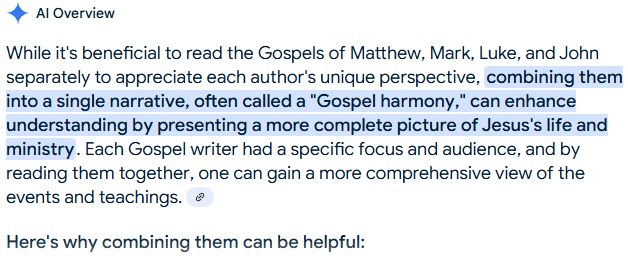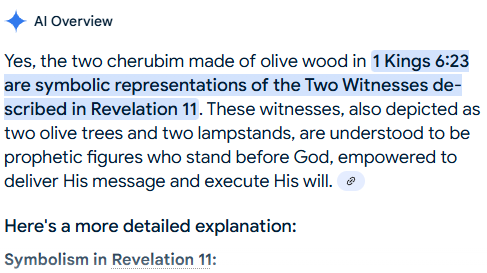Spiritual Israelite
Well-Known Member
No.Do you deny that Matthew was recording what Jesus said to all His disciples, who at the time were all or mainly Jewish?
No. What is the reason for this question?Do you deny that Luke was not an eyewitnesses and was recording what Jesus said to all His disciples, who at the time Jesus spoke, were all or mainly Jewish, after having collected information from Jesus' Jewish eyewitnesses?
No. But, Luke was writing to a Gentile audience so that is why he recorded Jesus's words differently at times so that his Gentile audience could understand what Jesus was talking about. Certainly, it would have been ridiculous for Luke to write "let the reader understand" in relation to a prophecy written by the prophet Daniel while knowing they would have no familiarity with it.Do you deny that whether Luke's record or Matthew's record, Jesus was talking to His mainly Jewish audience in what both Matthew and Luke recorded?
Yes, I deny that. That was a past event and Jesus was talking about a future event. Since what He was talking about related to the destruction of Jerusalem and the temple buildings, I think they would have immediately thought of Daniel 9:26-27 which has nothing to do with Antiochus IV in the 2nd century BC.Do you deny that to the Jewish mindset of Jesus' day, "the abomination of desolation spoken of by Daniel the prophet standing in the holy place" would have immediately been identified with Christ's audience at the time, with the abomination of desolation placed in the holy place by Antiochus IV in the 2nd century BC?
LOL. No, I'm sure He did that, but this is an irrelevant question. As usual, you are making things unnecessarily complicated.Do you deny that Jesus Himself celebrated channukah on which the above historical occurrence it was based?
LOL. I deny that you have any idea of what you're talking about here.Do you deny that in order to split Matthew 24:15-21 out from the rest of the passage in terms of what period of time its talking about, you defy the common use of English grammar and the Greek grammar that Matthew 24:9-31 is correctly translated from, which connects the entire passage into one and the same period of tribulation at the end of the age by the use of the words "and", "therefore", "for", "but" etc?
LOL. Yes, I deny that Luke 21:20-24 is not a parallel passage to Matthew 24:15-21 and you know that since I've said so many times.Do you deny that Luke 21:20-24 is not a parallel passage to Matthew 24:15-21 and that Luke 21:20-24 was talking about the wrath of God that would come upon Jerusalem, and that the disciples should therefore flee Judea when they see armies gathering against Jerusalem?
Do you deny that tribulation can refer to the wrath of God? If so, read Romans 2:9, 2 Thessalonians 1:6 and Revelation 2:22.
Yes, of course I do, since Jesus will return immediately after "the tribulation of those days" that Jesus was talking about in Matthew 24:29, which was not the tribulation He described in verses 21-22. Since you deny that Luke 21:20-24 is a parallel passage, you miss that the times of the Gentiles have followed the tribulation described in Matthew 24:15-21 that occurred in 70 AD. The times of the Gentiles will end when Jesus returns in the future.Do you deny that Matthew 24:9 and verses 21-22 and verses 29-31 are talking about a period of tribulation that Jesus was saying His disciples would endure - and that the period would be shortened for the elect's sake (Matthew 24:22)?
Quite clearly, you are wrong and have no idea of what you're talking about. Quite clearly, you are denying the obvious, which is that Matthew 24:15-22, Mark 13:14-20 and Luke 21:20-24 are parallel passages and describe what happened in Judea and in Jerusalem in 70 AD.Quite clearly, you do deny all this.
Last edited:





